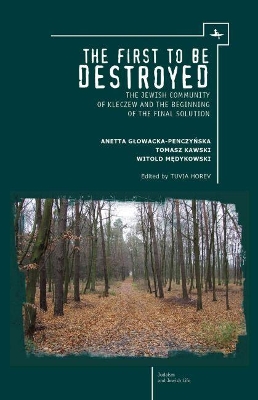Judaism and Jewish Life
1 total work
The First to be Destroyed
by Witold Medykowski, Anetta Glowacka-Penczynska, and Tomasz Kawski
Published 25 July 2015
The Jewish community of the city of Kleczew came into existence in the sixteenth century. It remained large and strong throughout the next four hundred years, and in the eighteenth and nineteenth centuries it formed between 40 and 60% of the total population. The Kahal of Kleczew acquired its autonomy in the eighteenth century, and formed a separate Jewish quarter of the municipal infrastructure, possessing a synagogue, a cemetery, a ritual bath, and a cheder. In the years 1918-1939, Jewish life in Kleczew developed strongly political-social aspects, with branches of multiple political groups and organizations forming and attracting members. After the outbreak of war in 1939, Kleczew's Jewish inhabitants were the first victims of the Nazis' mass extermination campaign, murdered between September and November 1941. This edited volume presents and explores the history of this complex, long-lived Jewish community.
